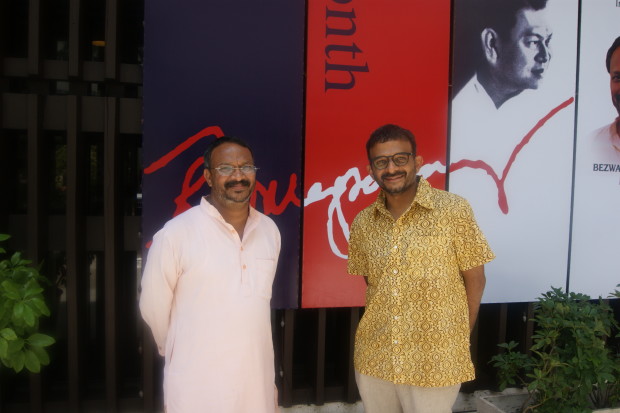Two Indian recipients of the 2016 Ramon Magsaysay Awards on Monday narrated their tales of how they overran obstacles and eventually attained victories in pushing their advocacies.
Bezwada Wilson, a native of Kolar Gold Fields in Karnataka, India, was part of India’s lowest caste system called Dalits and could have been just like his parents and ancestors, who were destined to do manual scavenging for most of their life, but he was determined to end this “destiny” by pursuing higher education and battle manual scavenging in his country.
Indian scavengers extract human feces and urine from dry latrines with their bare hands and carry the buckets filled with excrement to depository areas.
“My parents and ancestors for four or five generations were forced to do this,” he began.
“We did not start the movement or anything, we would like to acknowledge the thousands of movements who fought this system,” he said, noting that he was dedicating his award to other scavengers who fought against their inhumane conditions.
In 1993, Wilson launched the Safai Karmachari Andolan (SKA), and as the organization’s national convenor, he lobbied with the Indian government for scholarships for scavengers’ children and organized vocational training for female scavengers. Today, his movement has spread to 25 Indian states with 7,000 enthusiastic and gallant volunteers.
Aside from manual scavenging, SKA promotes gender equality, denouncing all forms of exploitation of women and children.
Thirty-two years into combating manual scavenging, Wilson, 50, who now works at Prime Minister Narendra Modi’s rural development program, Adarsh Gram Yojna, claims he is still campaigning to make the invisible Dalits become “visible” within India’s sophisticated legal and political system.
“Manual scavenging is now an issue that the Indian government must address…one cannot ignore [it] now…We are really so happy to say that the Ramon Magsaysay Awards Foundation made invisible people visible to the whole globe, not just India today,” Wilson jubilantly said.
Interestingly, the other Indian recipient of the Ramon Magsaysay Award, Thodur Madabusi Krishna, was born to a family of aristocrats. Krishna was born in 1976 to a Brahmin family in Chennai and begun learning Karnatik, a classic Indian music genre, at the age of 6.
Thodur Madabusi Krishna, the recipient of the 2016 Ramon Magsaysay Awardee for Emergent leadership, narrates his voyage to bring Karnatik music to the masses. PHOTO by Gianna Francesca Catolico/INQUIRER.net
However, Krishna opened his eyes to the exclusivity of his treasured talent–non-Brahmin communities and the Dalits, to which Wilson belonged, are prohibited from enjoying Karnatik and its cultural heritage. In the 1990s, Krishna led the Youth Association of Classical Music and introduced classical music to public schools and children.
“Classical music is part of a very exclusive group of people. Now, this exclusive group is formed in different ways, it is formed through the caste, which is a discrimination of the society,” Krishna explained.
“My intention to work started many years ago when I wondered why its art form was barred from many communities that were marginalized.”
He also vows to include music and narratives from impoverished and marginalized Indian sectors to mainstream industries such as Bollywood.
After bringing his passion to the youth, he hied off to Sri Lanka and launched a festival on “art healing” to bridge the gaps between people from all caste systems.
Thodur Madabusi Krishna was interviewed by media on his award. PHOTO by Gianna Francesca Catolico/INQUIRER.net
His exemplary mission to unite people from different walks of life and reinvent Indian society earned praise from the Ramon Magsaysay Center. With his aim to bring elite culture to rural provinces, he challenged discrimination and prevailing norms. He asserted, “Discrimination isn’t necessarily ‘don’t come don’t go,’ it happens on so many different layers, and you will realize the intimidation when someone that does not belong to your group enters your group.”
Krishna explained the basic elements of Karnatik music and why it is popular in India. “Suppose that I have a basket and I put all the melodies in one basket, and we can agree that all melodies have a cohesive unit–that’s the basis of the melody that we use.”
Both Wilson and Krishna will receive the 2016 Ramon Magsaysay Awards on Wednesday at the Cultural Center of the Philippines.
